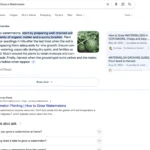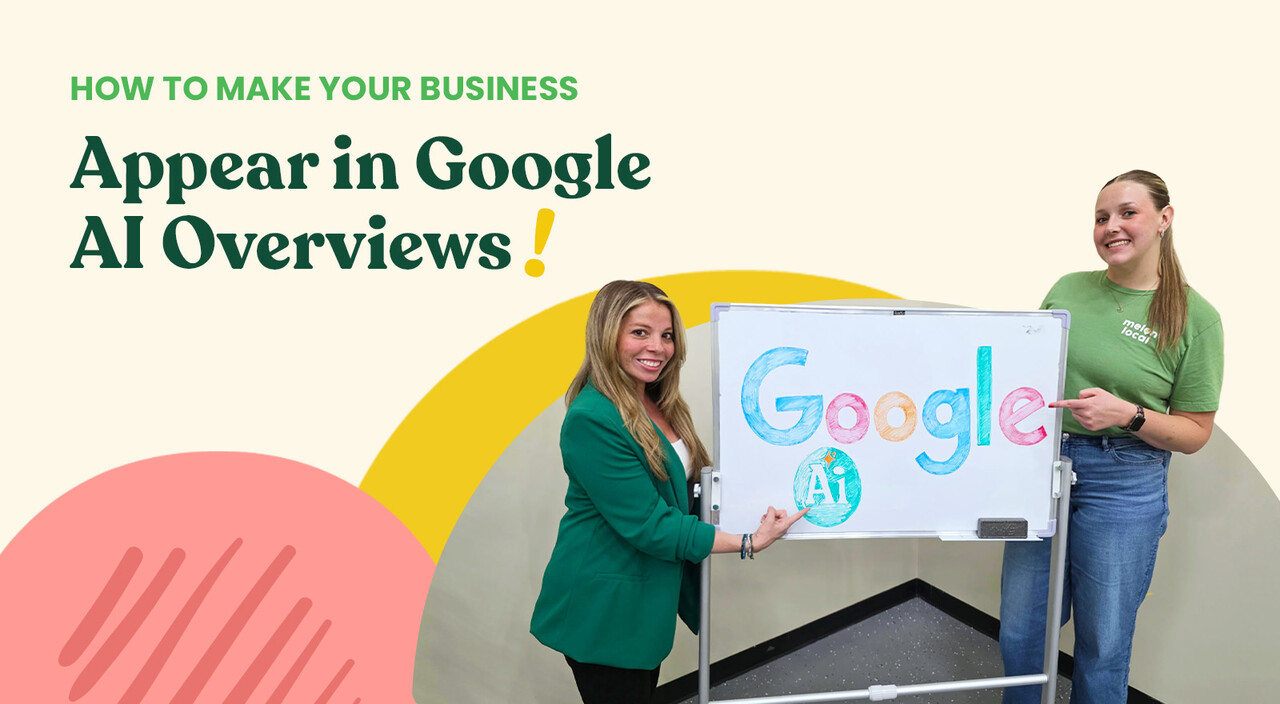Artificial intelligence (AI) isn’t just changing how businesses create content — it’s changing how their customers find them.
Depending on the search, Google may now present an AI Overview at the top of your organic results — and sometimes above or below paid ads. This new feature provides AI-generated summaries based on your search results.
Here’s what your business should know about Google’s ongoing AI rollout and how to set yourself up for an optimized presence.

An example of a Google AI Overview for the search result “How to grow a watermelon.” Notice the AI-compiled sources accompanying the overview.
What Are AI Overviews?
These overviews are concise, AI-generated summaries that appear at the top of certain search results, particularly for complex questions or informational topics. You can think of them as mini-articles that aim to provide users with everything they need without requiring them to click a link.
For example, if you were to Google “Where to find affordable insurance in Las Vegas?”, the AI Overview might display a concise breakdown, pulling info from trusted sources like government sites, blogs and review sites.
Keep in mind, this feature is still experimental and, like most major AI platforms, can sometimes produce inaccurate or even false information.
Who’s Affected?
Any industry with a lot of search-based discovery — and that includes everything from insurance agents to home improvement — should pay attention. Let’s take a theoretical insurance agent as an example.
For example, think of an insurance agent in Austin who’s built a strong digital presence by blogging regularly about life insurance basics. Maybe their blog “What’s the difference between term and whole life insurance?” used to rank in the top three results and pulled in solid traffic each month.
Now, Google displays an AI Overview for that exact query, and their blog post is cited, but users no longer need to click through. While there may be increased visibility, there also may be fewer clicks. And that means fewer chances to convert that searcher into a customer.
How to Adapt Your SEO Strategy
The rise in AI search results is a game-changer in the SEO world and has led to the practice of Generative Engine Optimization (GEO), which involves optimizing your content to boost its visibility in AI platforms. Here are some action items you can take to appear in overviews:
1. Find Ways to Answer Niche, Nuanced Questions
General information is more likely to be scooped up by the AI. But specific, hyper-targeted queries — “Best HMO plans for families in Nevada” — are still wide open. Think of ways to create content that drills down into these less competitive, more context-rich topics.
2. Structure Content Like You Mean It
Clean headers. Direct answers. Bulleted lists. Your content should feel easy to digest — not just for humans, but for AI parsing, too. When your site’s formatting is clear, Google’s systems are more likely to grab a quote or snippet that ends up in the overview.
3. Research Commonly Asked Questions
Platforms like AnswerThePublic, Semrush, and Google’s “People Also Ask” box are great resources for research. These reveal the real-world questions your audience is searching for — and those are the same queries that AI Overviews aim to satisfy.
4. Focus on Authority
When Google scrapes content for its summaries, it prefers trustworthy sources. Keep your site up-to-date, include citations when possible and build backlinks from reputable partners. Over time, this signals credibility, which improves your chances of being cited.
5. Rethink What a “Win” Looks Like
Traffic may dip. But visibility might grow. If your site is cited in an AI Overview, that’s a stamp of credibility. Even if the click doesn’t come through, the exposure still matters, especially for brand awareness and long-term trust.
Does Traditional SEO Still Matter?
Yes, traditional SEO still matters. We’ve gone from keyword stuffing to content depth, to mobile-first, to voice search and now to AI-led summaries. But the core principle remains the same: provide helpful, relevant, trustworthy content.
AI Overviews might take up more digital real estate, but that just means the content bar is higher.
Not sure how your current SEO strategy holds up against Google’s AI changes? Let’s take a look together. Schedule a demo, and we’ll show you what the future of digital marketing looks like!

